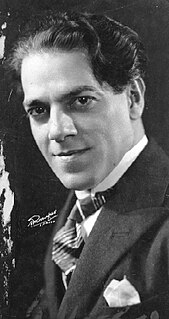
String Quartet No. 3 is the third of seventeen works in the medium by the Brazilian composer Heitor Villa-Lobos, and was written in 1916. A performance lasts approximately twenty-three minutes.

String Quartet No. 4 is the fourth of seventeen works in the genre by the Brazilian composer Heitor Villa-Lobos, written in 1917 and revised in 1949. A performance lasts approximately 23 minutes.

String Quartet No. 5 is the fifth of seventeen works in the genre by the Brazilian composer Heitor Villa-Lobos, written in 1931. A performance lasts approximately 17 minutes.

String Quartet No. 7 is the seventh of seventeen works in the genre by the Brazilian composer Heitor Villa-Lobos, written in 1942. With a performance lasting approximately 37 minutes, it is the longest of Villa-Lobos's string quartets

String Quartet No. 8 is one of seventeen works in the genre by the Brazilian composer Heitor Villa-Lobos, written in 1944. A performance lasts approximately twenty-five minutes.

String Quartet No. 10 is one of a series of seventeen works in the genre by the Brazilian composer Heitor Villa-Lobos, and was written in 1946. A performance lasts approximately 23 minutes.

Chôros No. 11 is a work for piano and orchestra written in 1928 by the Brazilian composer Heitor Villa-Lobos. It is part of a series of fourteen numbered compositions collectively titled Chôros, ranging from solos for guitar and for piano up to works scored for soloist or chorus with orchestra or multiple orchestras. Chôros No. 11 is the longest in the series, a performance lasting over an hour.

Symphony No. 1O Imprevisto is a composition by the Brazilian composer Heitor Villa-Lobos, written in 1916. A performance lasts about twenty-five minutes.

Symphony No. 2, Ascensão (Ascension) is a composition by the Brazilian composer Heitor Villa-Lobos, written between 1917 and 1944.

Symphony No. 3 is a composition by the Brazilian composer Heitor Villa-Lobos, written in 1919. A performance lasts about 35 minutes.

Symphony No. 4, "A Vitória" (Victory) is a composition by the Brazilian composer Heitor Villa-Lobos, written in 1919. A recording conducted by the composer lasts just over thirty minutes.

Symphony No. 5, A Paz (Peace) is a composition by the Brazilian composer Heitor Villa-Lobos, written in 1920. The score has been lost.

Symphony No. 6Sobre a linha das montanhas do Brasil is a composition by the Brazilian composer Heitor Villa-Lobos, written in 1944. It lasts about twenty-five minutes in performance.

Symphony No. 7, Odisséia da paz is a composition by the Brazilian composer Heitor Villa-Lobos, written in 1945. A performance lasts about 30 minutes.

Symphony No. 8 is a composition by the Brazilian composer Heitor Villa-Lobos, written in 1950. A performance lasts about 25 minutes

Symphony No. 9 is a composition by the Brazilian composer Heitor Villa-Lobos, written in 1952. A performance lasts about twenty minutes.

Symphony No. 10, Sumé pater patrium: Sinfonia ameríndia com coros (Oratorio) is a composition by the Brazilian composer Heitor Villa-Lobos, written in 1952–53. The broadcast performance of the world-premiere performance under the composer's direction lasts just over 67 minutes.

Symphony No. 11 is a composition by the Brazilian composer Heitor Villa-Lobos, written in 1955. A performance lasts about twenty-five minutes.

Nonet, subtitled "Impressão rápida de todo o Brasil" is a chamber-music work by the Brazilian composer Heitor Villa-Lobos, written in 1923. It is number W191 in the catalogue of works compiled by David Appleby.

The Piano Concerto No. 4, W505, is a composition for piano and orchestra by the Brazilian composer Heitor Villa-Lobos, written in 1952. A performance lasts about 27 minutes.


